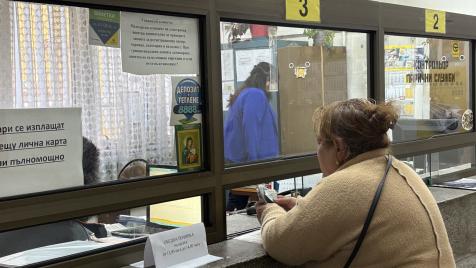Labor productivity in Bulgaria is actually declining
Bulgarians are producing less real value than a year ago

© ECONOMIC.BG / AI Generated
Labor productivity in Bulgaria is actually declining on an annual basis – by 0.2%. This is shown by preliminary data from the National Statistical Institute (NSI) for the second quarter of 2025. The indicator is formed by the total value created in the economy, divided by all those employed in it.
According to this formula, each employed person produces BGN 14,097.7 of the current gross domestic product (GDP), with each person generating an average of BGN 36.1 of GDP per hour worked. It appears that the amount is growing, but the data is at current prices, and after applying the relevant deflator, the actual output per Bulgarian citizen decreases.
The gross value added (GVA) per employee in the second quarter of 2025 decreased by 1.9% compared to the second quarter of 2024, and the GVA per hour worked decreased by 0.3% in real terms.
There are 3.714 million people employed in the economy, and the total number of hours worked is 1,452.1 million.
The structure of employment by economic sector in the second quarter of 2025 compared to the corresponding quarter of 2024 shows an increase in the relative share of the service sector and a decrease in the relative share of the agricultural and industrial sectors.
According to preliminary data, in the second quarter of 2025, the level of labor productivity in the service sector is BGN 12,472.4 GDP on average per employed person and BGN 31.4 per man-hour worked. In the industrial sector, each employee produces an average of BGN 14,472.3 GDP, with an average of BGN 35.6 of the current volume of the indicator being generated per man-hour worked. Labor productivity is lowest in the agricultural sector, at BGN 2,435.1 GDP per employee and BGN 7.2 per man-hour worked.
Translated with DeepL.

 Georgi Zhelyazkov
Georgi Zhelyazkov 


